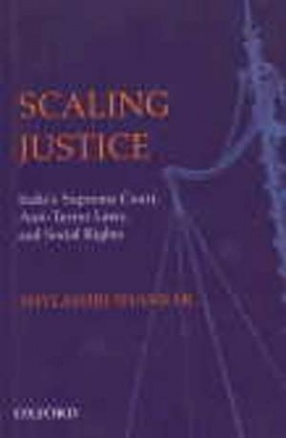The Indian Supreme Court is widely recognized as a complex and dynamic institution. It has been the subject of much acclaim, as well as criticism. The court has even been charged with overreaching itself and intruding into the domains of the executive and the legislature. In an era of globalization and judicial activism, the experience of India, offers a valuable perspective on the role judges play in a vibrant democracy. What explains the choices that India's Supreme Court justices make? Shankar addresses this question by combining a textured qualitative analysis of the constitutional and legal framework, landmark rulings and dissenting opinions, with a statistical multivariate analysis of cases dealing with civil liberties and social rights. She argues that judges are 'embedded negotiators' who craft judgments to avoid conflict with the political wings, while also remaining mindful of their role as safe keepers of the rights of citizens. This study shows how judges seek legitimacy for their decisions by negotiating with four elements that constrain or expand choices before them–laws, institutional norms/experience/rules, political preferences, and public concerns. It applies probability analysis on the higher judiciary's decisions in anti-terror, health and education cases from 1950-2006. This work represents the first time such an approach has been used to study the Indian Supreme Court. This unique book will interest scholars and advanced students of Indian constitutional law and history, human rights, political science and all those interested in the judiciary in contemporary India.
Scaling Justice: India’s Supreme Court, Anti-Terror Laws and Social Rights
In stock
Free & Quick Delivery Worldwide
reviews
Bibliographic information
Title
Scaling Justice: India’s Supreme Court, Anti-Terror Laws and Social Rights
Author
Edition
Ist ed.
Publisher
Oxford University Press, 2009
ISBN
195693205
Length
xxiv+230 p., Tables; Figures.
Subjects





There are no reviews yet.